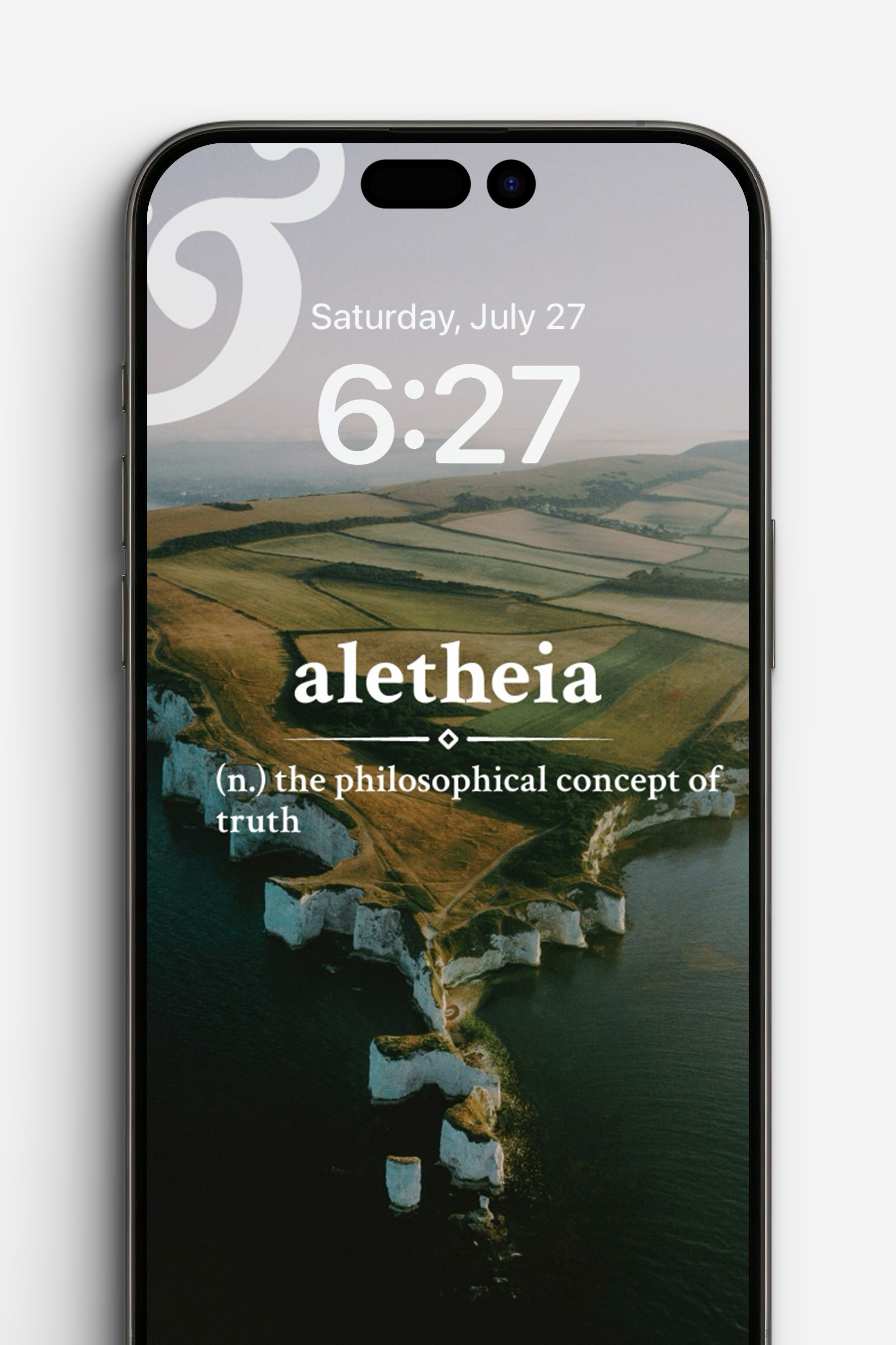Aletheia (n.) definition: the philosophical concept of truth

Aletheia (n.): the philosophical concept of truth
Aletheia is a Greek word often translated as “truth” or “unconcealment.” It comes from the prefix “a-“ (meaning “not”) and “lethe” (meaning “forgetfulness” or “concealment”). Thus, it literally means “the state of not being hidden” or “revealing.”
In philosophy, particularly in the work of Martin Heidegger, aletheia is more than just the correspondence of facts to reality. Heidegger interpreted it as a process of revealing or disclosure, in contrast to the conventional notion of truth as something static. To Heidegger, truth wasn’t simply about correctness but about things coming into openness, making themselves known.
In ancient Greek thought, aletheia had connections to memory and remembering, especially in contrast to lethe, the Greek word for oblivion, symbolized by the River Lethe in mythology. In this sense, aletheia also carried connotations of awakening or remembering what is real.